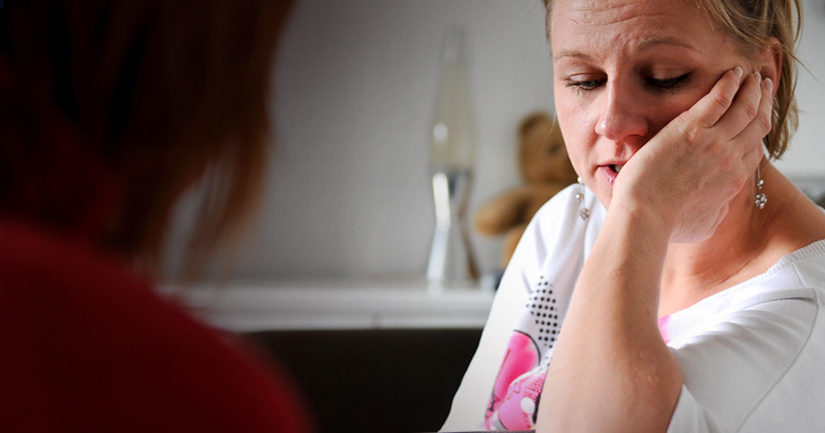[How victim blaming applies to romance scams. The latest research from Dr. Cassandra Cross explains how scam victims are blamed, how they are impacted and the influence on the reporting of scams. Who you should not tell about your scam, from Dr Brené Brown.]
The term ‘victim blaming’ has come to the fore recently in relation to photos of schoolgirls being published online, and one school’s response to this. As with rape and other sexual assaults in the past, the victim (schoolgirls) were blamed for their actions, clothing, etc inciting their abuse. The same happens with victims of romance scams.
“Victim blaming occurs when the victim of a crime or any wrongful act is held entirely or partially responsible for the harm that befell them“, according to Wikipedia. RationalWiki describes further: “Blaming the victim describes the attempt to escape responsibility by placing the blame for the crime or other abuse at the hands of the victim. Classically this is the rapist claiming his victim was “asking for it” by, for example, wearing a short skirt.”
The past years has seen an increasing understanding that rape victims are not to blame for their rape, no matter what they wear, and women walking through parks, or on their way home after a night out are not inciting their sexual assault simply by being out. The change in understand has been brought about by a concerted effort by women’s groups raising and successfully addressing the spectre of the sexual double standard involved.
 For those involved in romance scams, if they go public and talk about the scam they have suffered, the common response by some in social media is “how could you be so stupid“; “how could you give your money to someone you have not met“, and other comments of this type, including more derogatory comments. This is typical victim blaming, putting responsibility onto the person who has been subjected to a scam. (See my response to such social media comments in my previous blog Right of Reply). As with the RationalWiki definition above, these responses are an attempt to push the responsibility onto the victim, and in doing so, claim some superiority, a stance of “It would not happen to me“. They think they would know better and do better when confronted by a scammer.
For those involved in romance scams, if they go public and talk about the scam they have suffered, the common response by some in social media is “how could you be so stupid“; “how could you give your money to someone you have not met“, and other comments of this type, including more derogatory comments. This is typical victim blaming, putting responsibility onto the person who has been subjected to a scam. (See my response to such social media comments in my previous blog Right of Reply). As with the RationalWiki definition above, these responses are an attempt to push the responsibility onto the victim, and in doing so, claim some superiority, a stance of “It would not happen to me“. They think they would know better and do better when confronted by a scammer.
Unfortunately the press we have seen on TV, in magazines and newspapers sensationalise the impact on the victim in their stories and reinforce this view that the victim is responsible. This may be from a justifying stance of wanting to warn potential victims. Very seldom have I seen an alternative emphasis in these press/media stories such as giving information on how skilled the scammers are at manipulating people, telling lies and getting away with it, successfully persuading people that they are who they say they are, and how this is effectively and efficiently done. Sometimes there maybe a list of red flags given, but these are not given the weight that is needed. The event is still called a scam, implying a trick that can be easily seen through, rather than being correctly called a fraud, and the criminality of this highlighted.
This is all complicated by the fact that perpetrators are often overseas, and we seldom hear of them being caught and prosecuted, or even hear of people getting their money back (they don’t). This means there is no countervailing sensationalist story to balance out that of the victim, so victim blaming continues in the context of potential warning of victim .
Recent research by Dr. Cassandra Cross CRG 29/13-14: The reporting experiences and support needs of victims of online fraud where she interviewed 80 victims of scams discusses the psychological theories that have contributed to victim blaming, including ‘Ideal victim’ theory where passive action is implied. She describes the relevance in romance fraud:
Fraud victims, however, are rarely afforded ‘ideal victim’ status. As noted, fraud is unique in that there is generally communication between the victim and offender. In addition, many fraud victims willingly send money, personal details or other items of value to offenders, albeit under false pretences. Therefore, fraud victims are typically not seen to be passive actors in their situation; rather they are understood as an active contributor to the offence, and it is this relationship and interaction between the victim and the offender that leads to victim-blaming of fraud victims (Fox & Cook 2011: 3410). Victims of fraud are seen to actively violate the notion of an ideal victim and hence, are typically understood as blameworthy and culpable for their own victimisation.♣
Do not confuse the word “typically” in the last sentence with “correctly”. More on this later…. Victim Blaming is so prevalent and culturally all pervasive that victims feel tremendous guilt and shame for what has happened, and blame themselves:
In these examples, victims of online fraud clearly blame themselves for the incident; rather than talking about being the victim of an offence, they use the language of ‘being taken’, 26 ‘falling for it’ and ‘doing something stupid’. ♠
 Dr. Cross goes on to make clear linkages between these victim blaming attitudes and both the willingness of victims to report instances of romance scams to friends/family and fraud investigation agencies, and the attitudes victims encounter when they do report. Often the reporting experience can further traumatise victims. Please read the report for an extensive coverage of this area (summary report also available). Later in her report she includes the recommendation below, which in its context highlights what victims reported to her that they did not feel (respect, empathy, courtesy and dignity and understanding) in their interactions with law enforcement agencies, where many experienced victim blaming:
Dr. Cross goes on to make clear linkages between these victim blaming attitudes and both the willingness of victims to report instances of romance scams to friends/family and fraud investigation agencies, and the attitudes victims encounter when they do report. Often the reporting experience can further traumatise victims. Please read the report for an extensive coverage of this area (summary report also available). Later in her report she includes the recommendation below, which in its context highlights what victims reported to her that they did not feel (respect, empathy, courtesy and dignity and understanding) in their interactions with law enforcement agencies, where many experienced victim blaming:
Recommendation 3: That all frontline staff (across sectors such as law enforcement and banking/finance) are made aware of their obligations under their respective victim charter to treat victims with respect, empathy, courtesy and dignity, and that they understand this encompasses online fraud victims.♥
I want to finish with an acknowledgement of the impact of victim blaming on feelings of guilt and shame, and how often this leads to victims not even telling family and friends about what has happened. One of the leading exponents of understanding about how shame operates is Dr. Brené Brown – I have mentioned her in various previous posts. In past posts I have also said it is helpful to tell people about what has happened, however in the context of the prevalence and hurtfulness of victim blaming, I want to acknowledge and reinforce that Dr. Brené Brown says to be careful who you tell your story to, and only choose to tell those who have earned the right to hear it. This means those who know you and you know will support you fully and unquestioningly. That is, they will not resort to victim blaming. This video of part of her interview with Oprah says it all…
http://www.supersoul.tv/supersoul-sunday/six-people-who-do-not-deserve-to-hear-your-shame-story?FB=fb_omag_do_not_deserve_to_hear_shame_story
__________________________________________________
♣ http://www.crg.aic.gov.au/reports/1617/29-1314-FinalReport.pdf, pg 13
♠ http://www.crg.aic.gov.au/reports/1617/29-1314-FinalReport.pdf, pg 25
♥ http://www.crg.aic.gov.au/reports/1617/29-1314-FinalReport.pdf. pg 75

